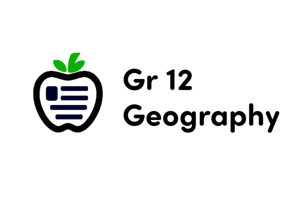Podcast
Questions and Answers
GIS विशेषज्ञों की मांग क्यों बढ़ रही है?
GIS विशेषज्ञों की मांग क्यों बढ़ रही है?
- रास्ट्र की सुरक्षा के लिए GIS का उपयोग करने पर
- सौर पैनल स्थापना के लिए सर्वोत्तम स्थलों की निर्धारण में सहायक होने पर
- पर्यावरण, राजनीतिक, और सामाजिक चिंताओं के समाधान में सहभागिता बढ़ने पर (correct)
- समृद्धि के मामलों के लिए विशेषज्ञ नियुक्त करने पर
GIS के माध्यम से क्या संभव होता है?
GIS के माध्यम से क्या संभव होता है?
- पुष्टि-आधारित सूचीकरण प्रस्तुत करना
- GIS लेयर को ओवरले करना
- सौर पैनल स्थापना के लिए सर्वोत्तम स्थलों की निर्धारण करना
- क्वेरी-आधारित सुविधा चयन करना (correct)
किस GIS तकनीक से गहरा ज्ञान प्राप्त होता है?
किस GIS तकनीक से गहरा ज्ञान प्राप्त होता है?
- सीमित सूचकों के माध्यम से पूछताछ हेतु (correct)
- सौर पैनल स्थापना हेतु सर्वोत्तम स्थलों की निर्धारण
- प्रकृतिक आपातकालीन हादसों के प्रति मजबूती प्रदान करना
- GIS में लेयर ओवरले करना
सही GIS मेथड क्या है जो बहुत सीमित सूचकों हेतु पूछताछ करने में सहायक है?
सही GIS मेथड क्या है जो बहुत सीमित सूचकों हेतु पूछताछ करने में सहायक है?
GIS विशेषज्ञों के लिए सही समस्या समाधान कैसे होता है?
GIS विशेषज्ञों के लिए सही समस्या समाधान कैसे होता है?
GIS का मुख्य सिद्धांत क्या है?
GIS का मुख्य सिद्धांत क्या है?
GIS का उपयोग किसलिए किया जाता है?
GIS का उपयोग किसलिए किया जाता है?
GIS के उपयोग से कौन-कौन समुदायों में साकार प्रगति होती है?
GIS के उपयोग से कौन-कौन समुदायों में साकार प्रगति होती है?
GIS को कैसे 'मॉडर्न भौतिक खुमी' के मूर्ति कहा गया है?
GIS को कैसे 'मॉडर्न भौतिक खुमी' के मूर्ति कहा गया है?
'नेटवर्क अनुकूलन' एल्गोरिदम का क्या महत्व है?
'नेटवर्क अनुकूलन' एल्गोरिदम का क्या महत्व है?
Flashcards are hidden until you start studying
Study Notes
Unraveling the Power of Geographic Information Systems (GIS)
Geographic Information Systems (GIS) serve as vital technological tools within the realm of geography, bridging the gap between tangible landscapes and powerful analytical capabilities. As a cornerstone of modern geospatial intelligence, this unique discipline offers a wealth of opportunities for researchers, urban planners, conservationists, and countless other professionals seeking to understand and manage the highly interconnected environments around us.
Foundational Principles
GIS operates on two fundamental principles: geographic data integration and analytical reasoning. By enabling users to map multiple layers of attributes onto digital representations of the earth's surface, GIS empowers individuals to explore patterns, identify relationships, and discern spatial associations among various phenomena.
Applicability Across Disciplines
The versatile applications of GIS extend far beyond traditional boundaries of academic geography. From predicting disease outbreaks using epidemiological models to evaluating transportation infrastructure via network optimization algorithms, GIS techniques fuel strategic decision-making across numerous fields, ultimately contributing towards sustainable development and societal progress.
Data Collection and Analysis Methods
With the advent of remote sensing technologies and advanced geolocation services, obtaining highly accurate and spatially resolved datasets for GIS analyses has never been easier. Techniques such as rasterization, vectorization, and object-oriented classification facilitate efficient management and manipulation of vast amounts of geospatial data.
Moreover, GIS offers a host of specialized functions and operations for conducting quantitative and qualitative assessments—from performing buffer zone calculations to determining optimal sites for solar panel installations. The ability to overlay GIS layers, perform query-based feature selection, and generate geoprocessing solutions equips analysts with exceptional tools for interrogating spatial complexity.
Empowering Decision Making
Informed choice making lies at the heart of any effective GIS strategy. By collapsing barriers inherent to silos of information, GIS fosters a multifaceted approach to problem solving, encouraging collaboration amongst diverse stakeholders and promoting holistic solutions tailored to specific socioeconomic conditions and ecological constraints.
Building Tomorrow Today
As society becomes increasingly aware of the urgent need to safeguard resources and strengthen resilience against natural hazards, the demand for skilled GIS practitioners continues to grow exponentially. Mastery of GIS techniques not only enhances career prospects, but also imparts valuable skills for participating meaningfully in discussions surrounding pressing environmental, political, and socioeconomic concerns shaping the contemporary landscape.
By embracing the power of GIS technology, we embark on a journey of revelatory exploration, charting untrodden paths towards a more informed and sustainable future.
Studying That Suits You
Use AI to generate personalized quizzes and flashcards to suit your learning preferences.




